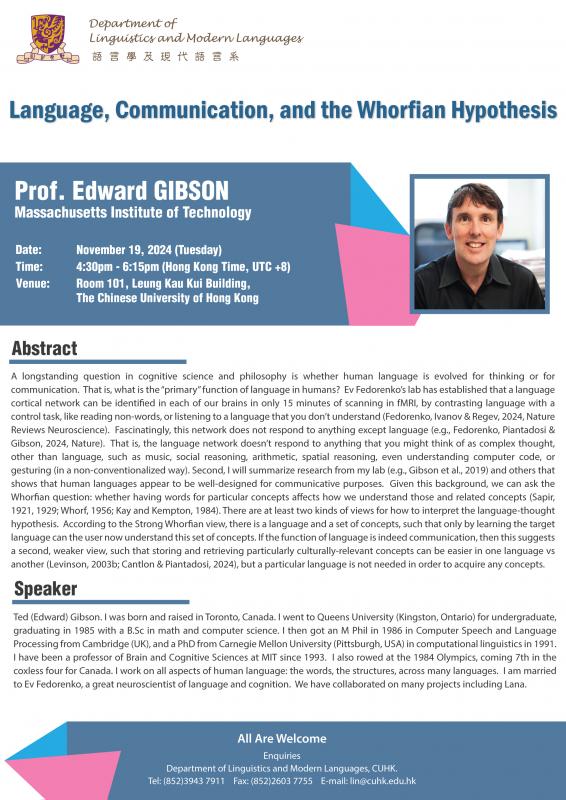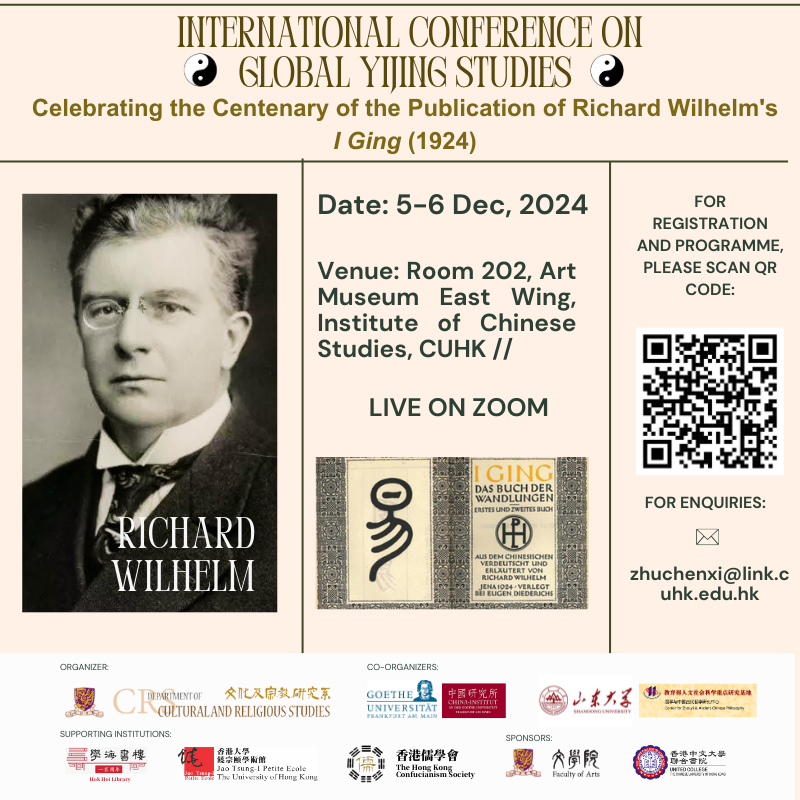
A longstanding question in cognitive science and philosophy is whether human language is evolved for thinking or for communication. That is, what is the “primary” function of language in humans? Ev Fedorenko’s lab has established that a language cortical network can be identified in each of our brains in only 15 minutes of scanning in fMRI, by contrasting language with a control task, like reading non-words, or listening to a language that you don’t understand (Fedorenko, Ivanov & Regev, 2024, Nature Reviews Neuroscience). Fascinatingly, this network does not respond to anything except language (e.g., Fedorenko, Piantadosi & Gibson, 2024, Nature). That is, the language network doesn’t respond to anything that you might think of as complex thought, other than language, such as music, social reasoning, arithmetic, spatial reasoning, even understanding computer code, or gesturing (in a non-conventionalized way). Second, I will summarize research from my lab (e.g., Gibson et al., 2019) and others that shows that human languages appear to be well-designed for communicative purposes. Given this background, we can ask the Whorfian question: whether having words for particular concepts affects how we understand those and related concepts (Sapir, 1921, 1929; Whorf, 1956; Kay and Kempton, 1984). There are at least two kinds of views for how to interpret the language-thought hypothesis. According to the Strong Whorfian view, there is a language and a set of concepts, such that only by learning the target language can the user now understand this set of concepts. If the function of language is indeed communication, then this suggests a second, weaker view, such that storing and retrieving particularly culturally-relevant concepts can be easier in one language vs another (Levinson, 2003b; Cantlon & Piantadosi, 2024), but a particular language is not needed in order to acquire any concepts.
Speaker
Prof. Edward Gibson is currently a Professor at the Department of Brain and Cognitive Science at Massachusetts Institute of Technology (MIT).
Ted (Edward) Gibson. I was born and raised in Toronto, Canada. I went to Queens University (Kingston, Ontario) for undergraduate, graduating in 1985 with a B.Sc in math and computer science. I then got an M Phil in 1986 in Computer Speech and Language Processing from Cambridge (UK), and a PhD from Carnegie Mellon University (Pittsburgh, USA) in computational linguistics in 1991. I have been a professor of Brain and Cognitive Sciences at MIT since 1993. I also rowed at the 1984 Olympics, coming 7th in the coxless four for Canada. I work on all aspects of human language: the words, the structures, across many languages. I am married to Ev Fedorenko, a great neuroscientist of language and cognition. We have collaborated on many projects including Lana.
Should you have any inquiry, please contact the General Office at 39433219.


